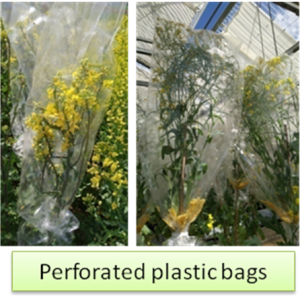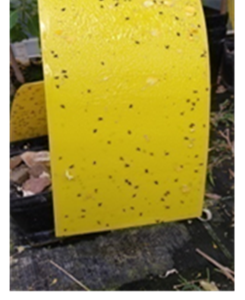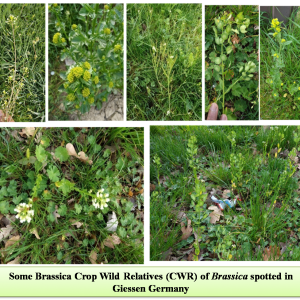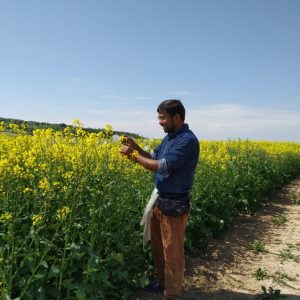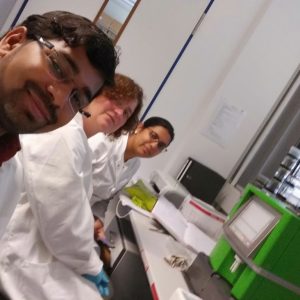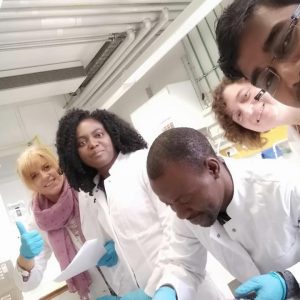Dr. Mahesh Rao visited PHASE lab at Plant Breeding Department, Justus Liebig University, Giessen, Germany headed by Dr. Annaliese S. Mason. The short term training was planned on the “Advanced cytogenetic tools and techniques in relation to interspecific hybridization and polyploidy for Brassica crop improvement”. During the period he learned about different techniques used in the cytogenetic study of wide hybrids especially in the rapeseed-mustard hybridization.
During this training period, he undertook hands-on-training related to classical and molecular cytogenetics in Brassica species and interspecific hybrids, including meiotic analysis, chromosome counting, FISH/GISH and more. In the laboratory, the research work is going on in the area of development of allohexaploid Brassica, hybrid speciation and recreating genomically stable rapeseed.
During his training at PHASE lab, he learned about following techniques;
- Classical cytogenetics: Mitosis and Meiosis
- Molecular cytogenetics: FISH/GISH
- Analysis of the mitosis/meiosis /FISH/GISH in the wide hybrids and
- Flow cytometry and pollen viability analyzer
During this training period, he undertook hands-on-training related to Apart from his training in the techniques, he visited to the research fields to understand the field management practices and also presented a seminar on his area of research i.e., “Diversification of Agronomic Traits in Brassica Juncea through wide Hybridization”.
Also, during the visit he noticed something which could be adopted to enhance research at the laboratories:
- Cutting and planting of branches for plant multiplication especially in rapeseed- mustard.
- Use of the perforated plastic bags for selfing and crossing in crop plants.
- Use of insect trap in the polyhouse/phytotron/nethouse/glasshouse to minimize the disturbance due to different insects.
- Use of plant growth hormone for short plant height, which minimizes damage occurring in tall plant height.
He learned about many crop wild relatives (CWR) of Brassica grown wildly in the river banks and road side. The wild species diversity is good in the Giessen which is utilized in the Brassica improvement program.

